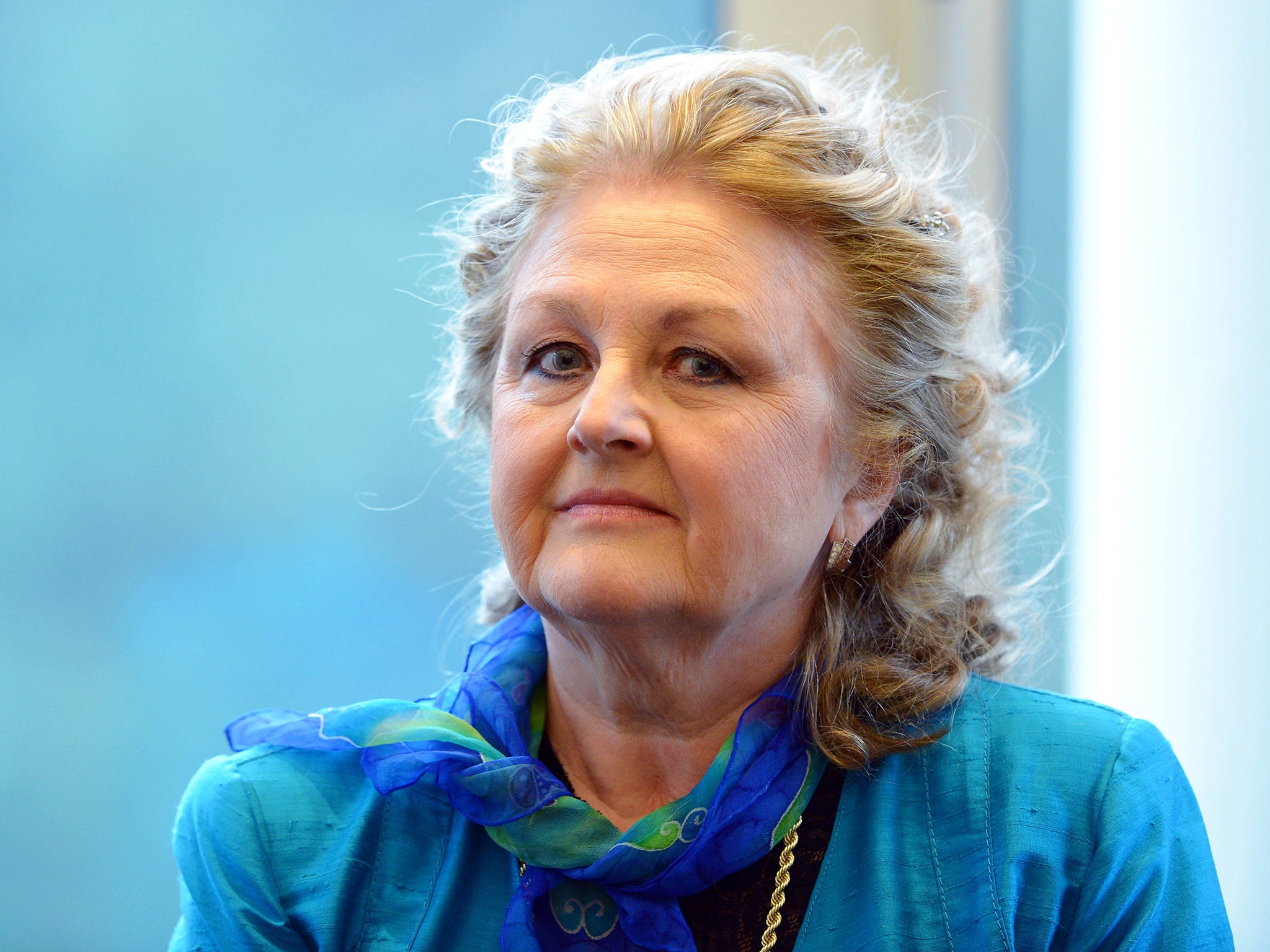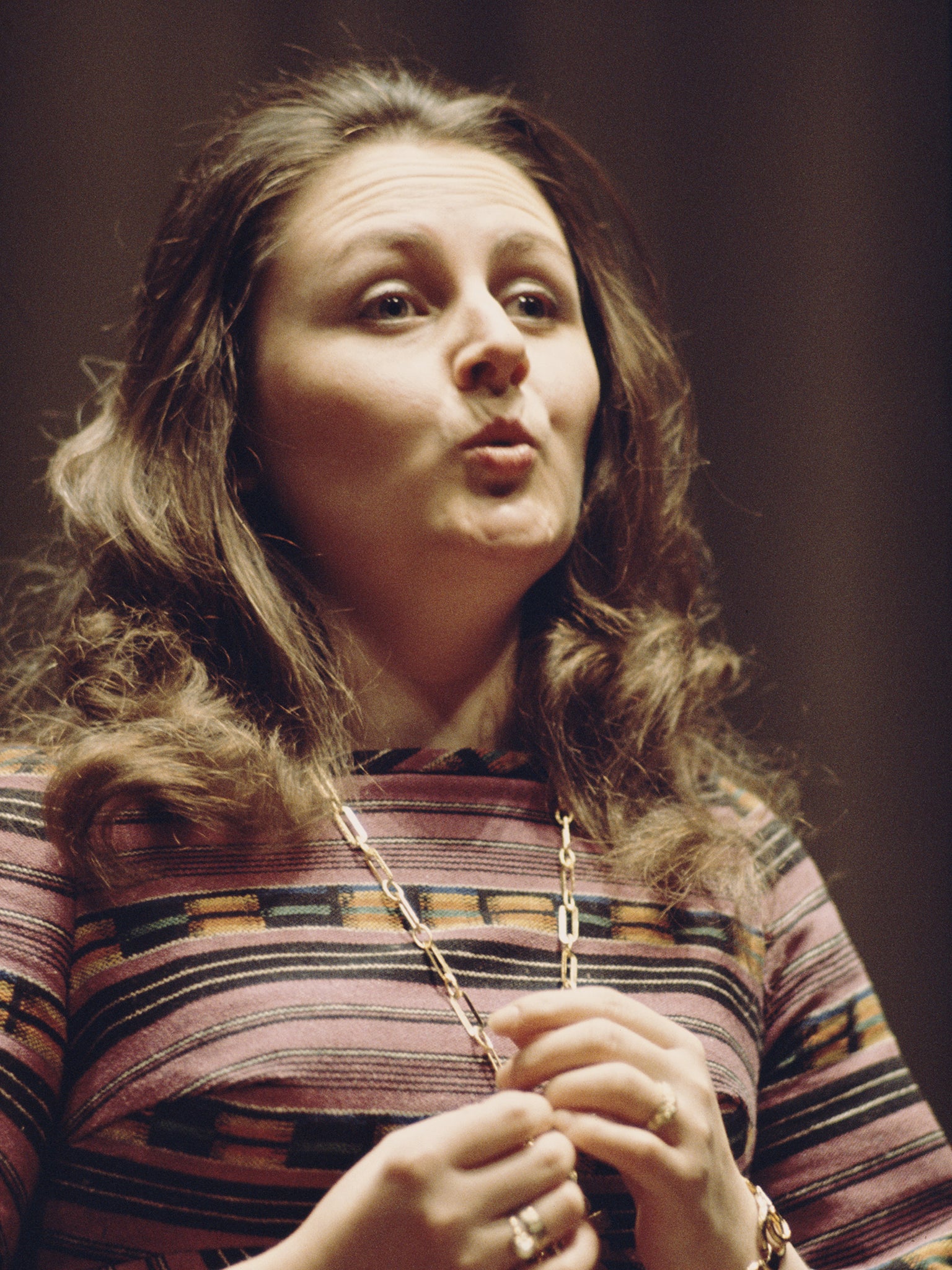Edita Gruberova: Dazzling soprano who reigned over world opera stages
In a career that lasted more than half a century, Gruberova became on of the most beloved stars of her generation

Your support helps us to tell the story
From reproductive rights to climate change to Big Tech, The Independent is on the ground when the story is developing. Whether it's investigating the financials of Elon Musk's pro-Trump PAC or producing our latest documentary, 'The A Word', which shines a light on the American women fighting for reproductive rights, we know how important it is to parse out the facts from the messaging.
At such a critical moment in US history, we need reporters on the ground. Your donation allows us to keep sending journalists to speak to both sides of the story.
The Independent is trusted by Americans across the entire political spectrum. And unlike many other quality news outlets, we choose not to lock Americans out of our reporting and analysis with paywalls. We believe quality journalism should be available to everyone, paid for by those who can afford it.
Your support makes all the difference.Edita Gruberova, a soprano who reigned over world opera stages for decades, dazzling audiences with her shimmering pianissimos and vocal pyrotechnics in the works of composers including Donizetti, Verdi and Richard Strauss, has died aged 74 from an accidental head injury.
In a career that lasted more than half a century, from her debut in her native Bratislava, in what is now Slovakia, until her retirement last year, Gruberova became recognised as “a spectacularly accomplished coloratura soprano and one of the most beloved stars of her generation”, in the description of an obituary published in Opera News.
Gruberova sang in the world’s leading opera houses, including the Royal Opera House at Covent Garden, the Metropolitan Opera in New York and La Scala in Milan. But she was best known for her association with the Vienna State Opera, where she debuted in 1970 as the Queen of the Night in Mozart's The Magic Flute and where she returned for perhaps hundreds of performances before a farewell concert in 2018.
She built a career characterised by variety as well as longevity, with a repertoire that encompassed the 18th-century works of Mozart, the bel canto canon of Rossini, Bellini and Donizetti, Italian warhorses such as La Traviata and German standards such as Ariadne auf Naxos by Strauss.
“My God, if only Strauss had heard your Zerbinetta!” Austrian conductor Karl Bohm once remarked to her, according to the Vienna State Opera, which noted that he, “was not exactly prone to praise”.
Zerbinetta, a principal female role in Ariadne auf Naxos, was one of Gruberova’s most celebrated parts. Others included the title role of Donizetti's Lucia di Lammermoor, the fragile heroine whose descent into insanity provides a dramatic showcase for the soprano in the opera's “mad scene”.
Gruberova’s most famous predecessors as Lucia included such stars as Maria Callas and Joan Sutherland. The Washington Times declared in 1993 that Gruberova was, “without doubt the finest interpreter of Donizetti’s mad heroine singing today”.
In other bel canto roles, she distinguished herself as Rosina in Rossini’s The Barber of Seville and Elvira in Bellini’s I Puritani. She braved Donizetti’s Tudor queens trilogy, singing the title roles of “Anna Bolena” (Anne Boleyn) and “Maria Stuarda” (Mary Stuart) and the part of Elizabeth I in Roberto Devereux.
Gruberova found a calling card in Verdi’s La Traviata, a tragedy about a self-sacrificing courtesan who discovers true love just as she expires from consumption.

Her, “limpid trills and transparent pianissimos in all registers are models of the bel canto approach to coloratura singing”, a critic in the US wrote in 1989. “She can also build her voice to grand, rapturous climaxes as haunting in their dramatic power as those produced by great Violettas of recent memory – Maria Callas, Joan Sutherland and Montserrat Caballe.”
Such was Gruberova’s affinity for the role that she returned to it at the age of 64, more than four decades after she had first sung Violetta’s cherished arias in a small theatre in Czechoslovakia. “I love Violetta as much as ever,” she said in 2010, during performances of the opera in Germany and Austria.
The tenor who played her love interest, Alfredo, was roughly half her age – but no matter.
“I think the more experiences you gather in life that you can transfer into music, into song, the better,” she remarked. “And my voice is still there.”
Edita Gruberova was born in Bratislava on 23 December 1946, the daughter of a German father and Hungarian mother. “Singing always comforted me. My mother liked singing, too, and from her I inherited the voice,” Gruberova once said.
She studied at a conservatory in Bratislava before debuting in that city in The Barber of Seville in 1968. Her New York Met debut came in 1977, as the Queen of the Night.
“Miss Gruberova’s voice is not big but neither is it of the pallid, chirping kind sometimes associated with coloraturas,” the New York Times wrote. “It had enough edge in this first New York appearance to assert itself over the orchestra, and that alone provided a semblance of dramatic impact.”
In addition to her long association with the Vienna State Opera, Gruberova performed over the years at the Glyndebourne, Salzburg and Bayreuth Festivals, as well with the Bavarian State Opera in Munich and the Zurich Opera House, among many others. She stopped singing only last year as the pandemic forced theatres to close.
In addition to her extensive discography, Gruberova appeared as Gilda in director Jean-Pierre Ponnelle’s film version of Rigoletto, which also featured tenor Luciano Pavarotti as the lecherous Duke of Mantua and baritone Ingvar Wixell as Gilda’s father, the hunchbacked jester desperate to shelter her from the evils of the world.
Gruberova once confessed that if the applause after a performance lasted less than 20 minutes, “it bothers me”. Many fans gladly obliged. During a 2011 performance of Anna Bolena at Barcelona’s Gran Teatre del Liceu, audience members in the balcony lowered a banner that read “Edita, La Regina” – “Edita, the Queen”. The curtain calls, according to an account, went on for more than 20 minutes.
Edita Gruberova, opera singer, born 23 December 1946, died 18 October 2021.
© The Washington Post


Join our commenting forum
Join thought-provoking conversations, follow other Independent readers and see their replies
Comments